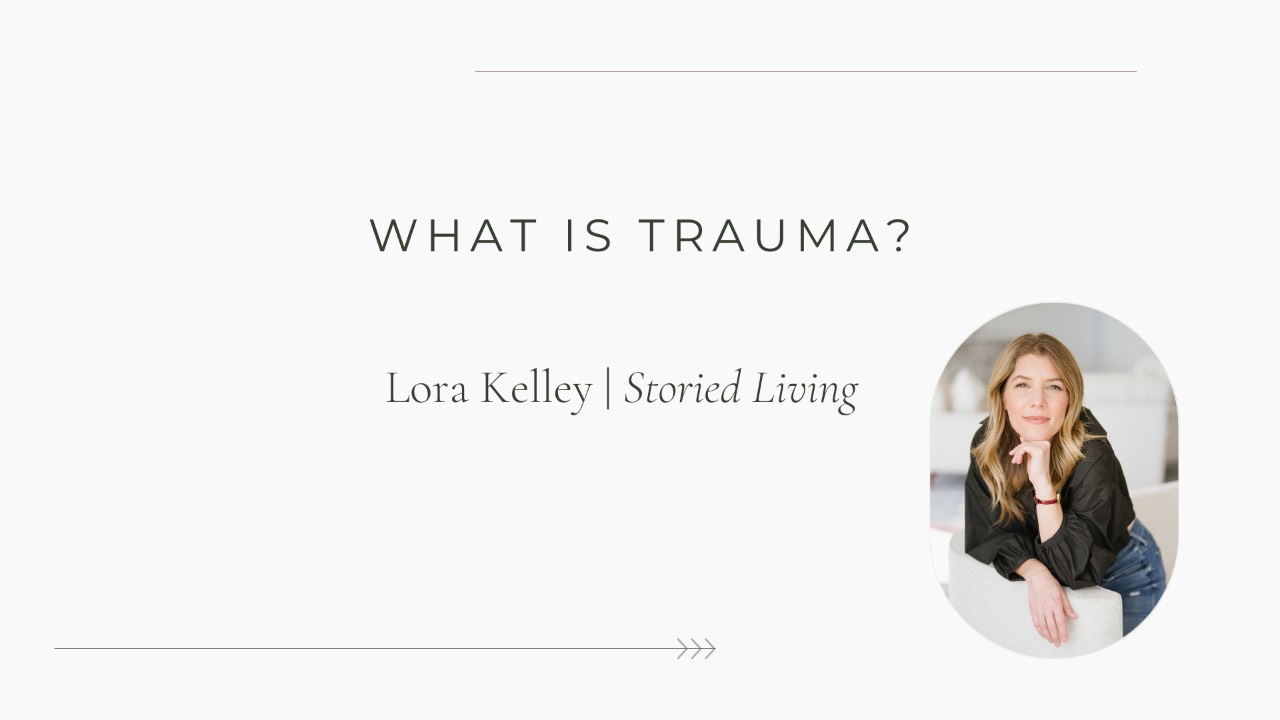What is trauma?
Oct 02, 2023
Friends,
Happy Monday Friends!
What is trauma?
Trauma follows a pattern and it falls on a spectrum.
But the impact is particular to each person.
So let me make a bold statement:
No one else has the measuring stick of validation or worthiness for your experience.
One of my mentors and teachers, Janet Evergreen describes trauma like this:
”Trauma is the sense of ‘Too much, too fast, too soon.’”
When you simplify trauma into those categories, it can be much easier to see the scope of trauma as a range that differs depending on a person experiences them.
Take for example a young boy’s exposure to porn at age 9 and hold it up to Janet’s definition:
Too much, too fast, too soon.
When you consider the exposure to sexually explicit content without a supportive adult’s presence to help the child understand what he’s seen and what he may have experienced in his young body as a result of what he’s seen, you begin to see the devastating impact on a male child’s developing body, especially if this is the first sexual imprint in his development.
Renowned trauma expert, Peter Levine, describes it like this:
”Trauma is not what happens to us, but what we hold inside in the absence of an empathetic witness.”
Take for example a 13 year old girl’s first experience in the locker room in Jr. High.
Where does she fall in the developmental range? Has she been given a bra? What about the other girls? Is there privacy?
Her experience of the locker room may be difficult and uncomfortable, but this discomfort can be eased and navigated with good care. Proactive care and re-active care.
Is mom anticipating these changes and attuning to her daughter? Can her daughter go to mom for help, support, guidance, with whining, anger or disappointment?
How does mom show up for her developing body and needs?
When you consider that one part of trauma is a lack of care in response to difficulty, you can see how impactful it can be on a young girl’s developing body and sense of self.
There is also Francis Weller’s beautiful and haunting definition:
”Trauma is an uncontained encounter with death.”
And what are the ways we encounter death?
Endings of all kinds. The end of childhood. The end of a home. The end of a church home after spiritual abuse or sexual misconduct. The end of our body’s youthfulness. The end of a friendship. The end of marriage. The end of a nuclear family system. The end of a pet’s life or the end of a grandparent’s life. The end of a job.
All types of death need care. There is no ‘death’ too small or undeserving of care.
Story work is the practice of inviting someone to be with you in what you experienced, how it has impacted you, and how it’s showing up in the present day.
Not so you can be “fixed” like a problem, but so that you can be supported and held… like a person.
Like a person who was always intended to step into goodness and just needs help to get there.
After years of this work, I will never not have both paid and unpaid support.
As I was talking about this with my husband I asked if I could share a bit of his experience. He was grateful to offer it to you. ❤️
When my husband’s father had a stroke in January, the first thing I said to him is: I’m hiring you two coaches. One for your story and your heart, and one for your business and your work.
Why? Because his father was dying, and he needed robust care.
Why else? Because my husband was deeply occupied with all that it takes to support his father, his mother, his brother and himself through a quick and unexpected ending. and I needed help supporting him.
Why else? Because he’s worthy.
What is the result?
His recovery time was halved. His business did not fall apart.
He modeled the power of being with his limitations and asking for and receiving help.
He felt held by two reliable, very specific and distinct places a week to bring his grief about his father and his need to think clearly about his work.
This let us get to be his family and support him and love on him.
He got to be dad at home.
A dad who could care for his own grief so he could be with his children’s confusion and grief.
He modeled for his kids what it looks like to say: I am heartbroken. This is impactful, and I need help.
Let me show you how to grieve and be powerful at the same time.
Last week, he looked at me and said:
Thank you. I could not have gotten through this year without that support.
Sometimes when our stories have required us to “man up” or “move on” or if we’re really good at functioning without help or without need… asking for help, paying for help, receiving help… can trigger deep-seated shame about “weakness” or “failure”.
But when you can step out of those re-enactments, you can find healing.
And more than healing… you can find life.
Where does your heart need the presence of an empathetic witness?
Where does your body need to feel a slow, gentle pace?
Where have you experienced trauma?
Your story is worthy.
xo,
Lora
If you're ready to step into a space that is fill with resources, LIVE calls with trainings and q&a, a private podcast and community space click below to join the Storied Living Membership.
